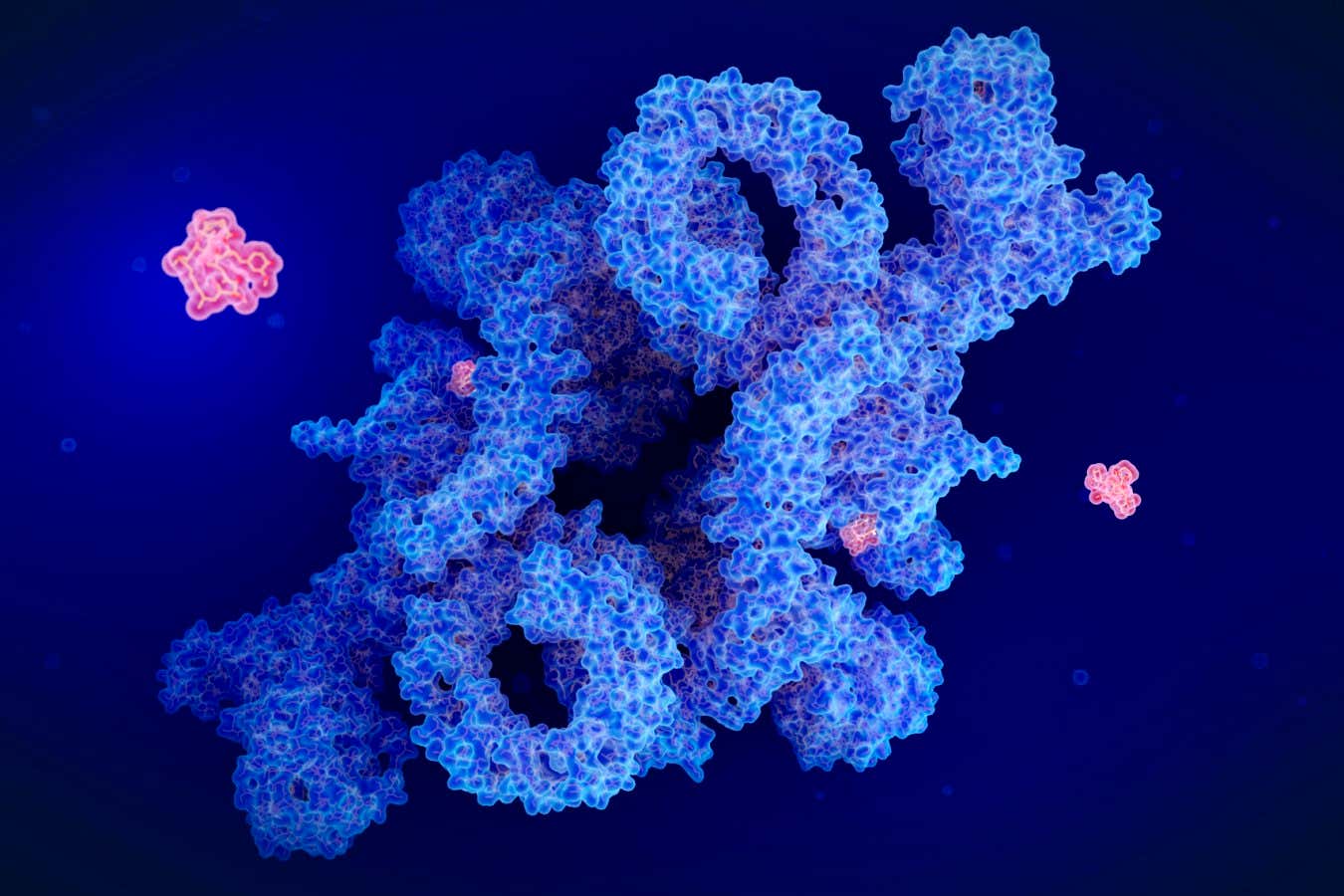Restricting calories has been linked to living longer in many studies, and now it seems that the drug rapamycin has nearly the same effect, at least in animals
By Chris Simms
19 June 2025
An illustration of the drug rapamycin (red) inhibiting the protein complex mTORC1, which has various effects on cellular function
SCIENCE PHOTO LIBRARY/Getty Images
The drug rapamycin seems to have more or less the same life-extending effect as restricting calories, according to the largest study yet of longevity in different vertebrate species.
Scientists are investigating whether interventions like dietary tweaks and exercise could help us live longer while reducing the health impacts of ageing. Restricting calorie intake while ensuring essential nutrient needs are met, for example, has been shown to extend the lifespan of non-human animals by as much as 40 per cent.
Read more
The shocking discovery that our gut microbiome drives ageing
Advertisement
“Anyone in the field who’s paying attention, I think we all have known for a long time that caloric restriction usually works – and by works, I mean increases lifespan,” says Matt Kaeberlein at the University of Washington in Seattle, who wasn’t involved in the latest research.
Another approach garnering interest is potential anti-ageing drugs, such as rapamycin, which was originally developed as an immunosuppressant. A combination of rapamycin and the cancer drug trametinib was shown earlier this year to increase lifespan in mice by 30 per cent.
Now, Zahida Sultanova at the University of East Anglia, UK, and her colleagues have looked at data from 167 studies of lifespan interventions across eight vertebrate species, including fish, mice, rats and rhesus monkeys, but not humans.
